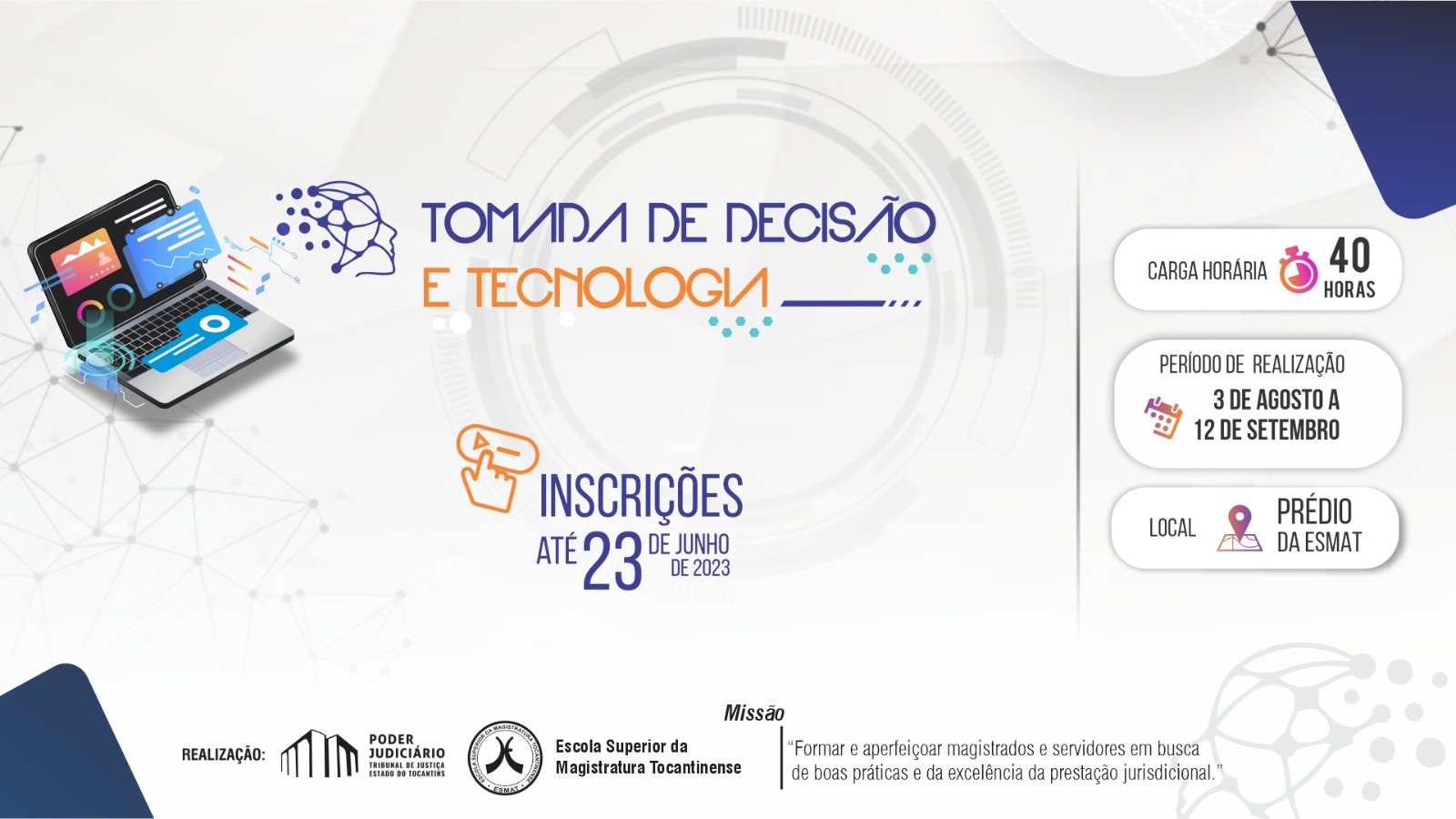
The Superior School of the Judges of the State of Tocantins (ESMAT) opens on Wednesday (June 14th), the registrations for the course on "Decision Making and Technology". The training, which will be held from August 3rd to September 12th this year, aims to develop the skills inherent to the understanding and application, in the judicial activity, of neuroscientific propositions, especially with regard to brain-machine interfaces combined with artificial intelligence. This includes issues such as the right to free will, the right to mental privacy, and protection against
Register clicking here.
With a workload of 40 hours, the course will be held in person, at Esmat, and it will be attended by magistrates from the Judiciary of the State of Tocantins and from other States. Fifty vacancies will be available for the target audience.
Attention! For those interested in coming from other States, registrations will be made through the indication of the Coordination of Enfam, by the e-mail
The course faculty is composed of experts in the field, including Post-Doctor Léo Peruzzo Júnior, Doctor Murilo Karasinski, Post-Doctor Solange Mata Machado, Doctor Rosivaldo Toscano dos Santos Júnior, Post-Doctor Tiago Gagliano Pinto Alberto, and Doctor José Eustáquio de Melo Júnior. Each one of these professionals brings a vast knowledge and experience in the area, further enriching the training proposal.
For more information, read the Notice clicking here.
The course is justified by the importance of judicial decision-making in an increasingly technological world. As technology advances, challenges arise that require a thorough understanding of neuroscience discoveries and their application in the legal field. The brain-machine interface and artificial intelligence offer opportunities and challenges for law, allowing the analysis of large data sets and the identification of patterns to support fair and accurate decisions.




